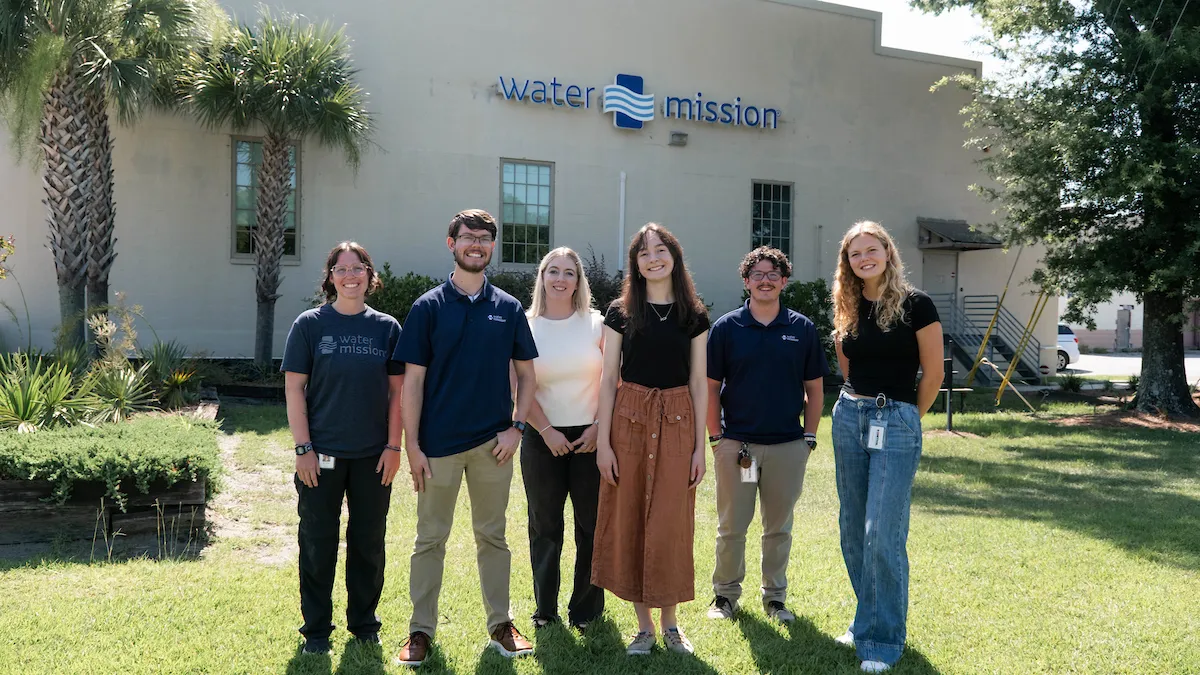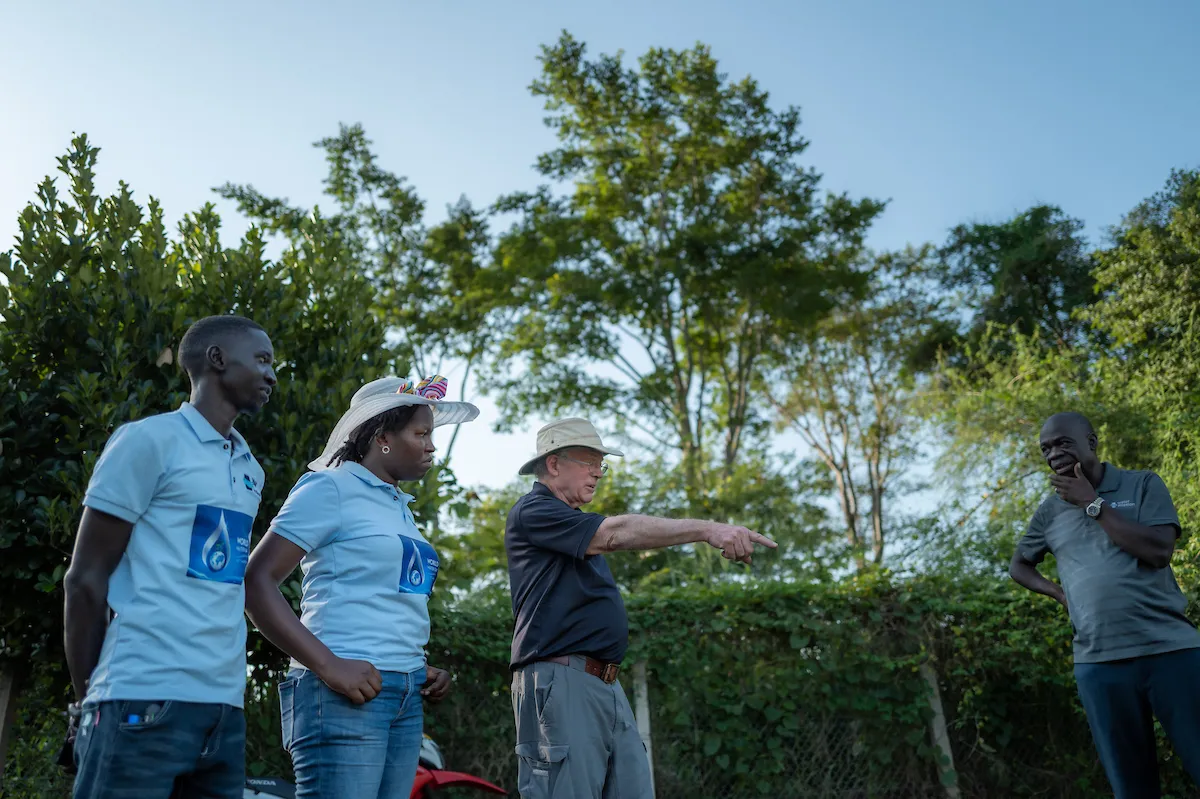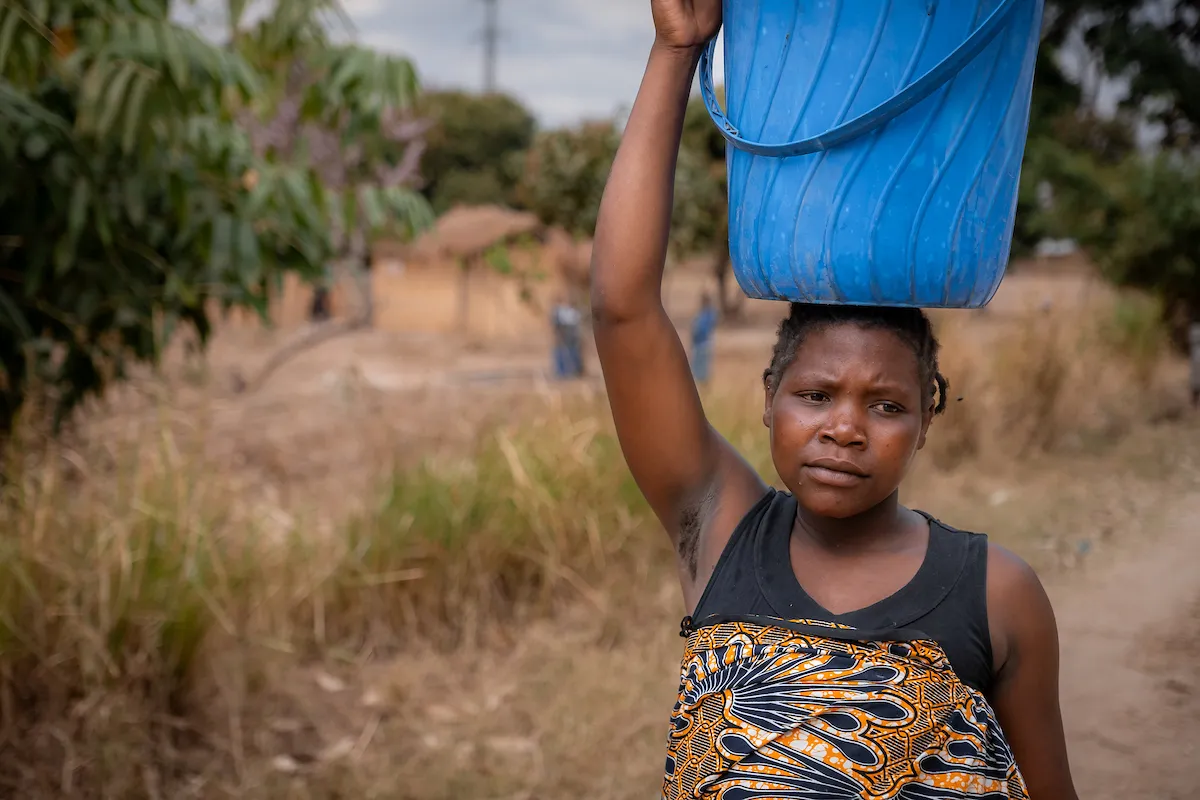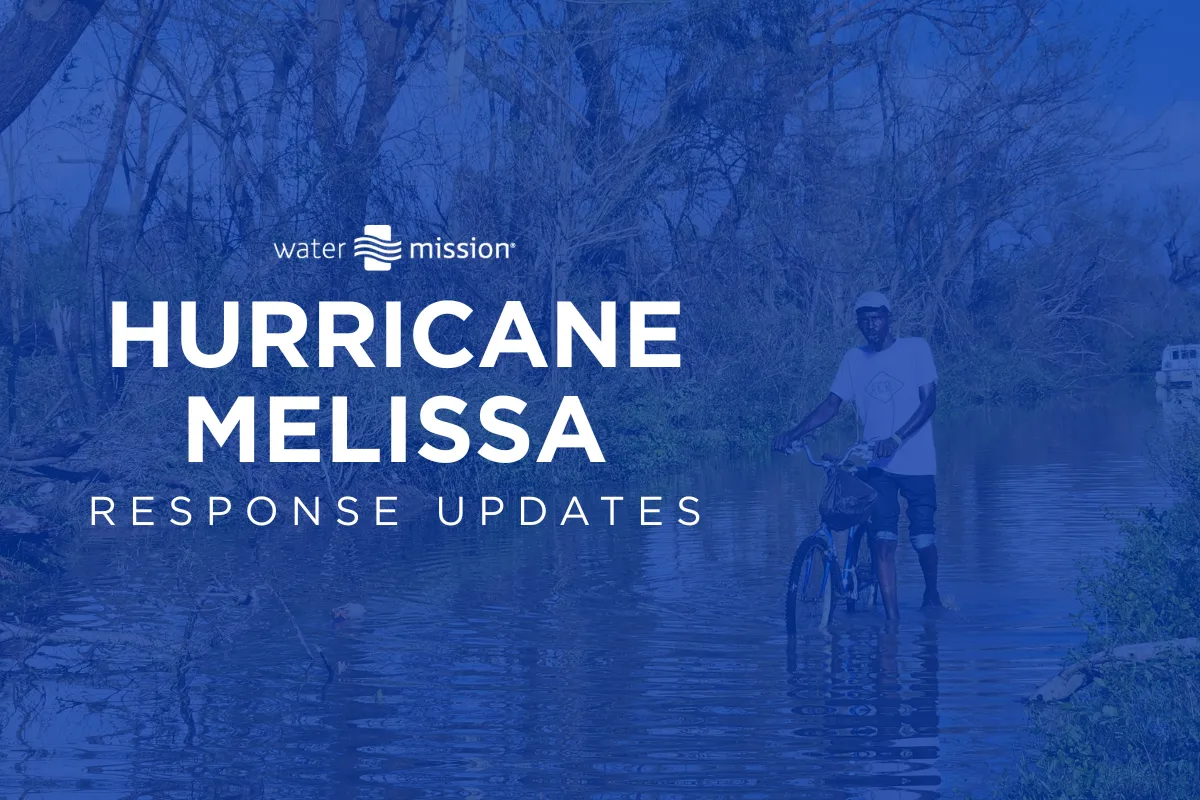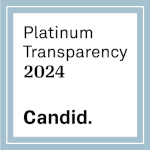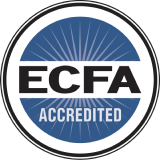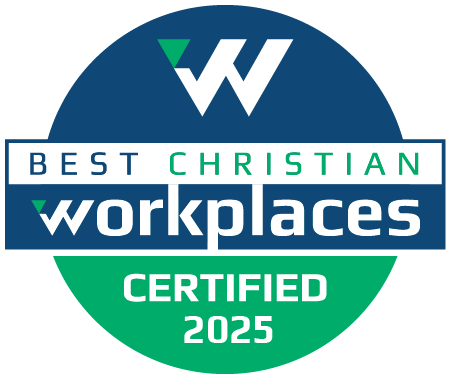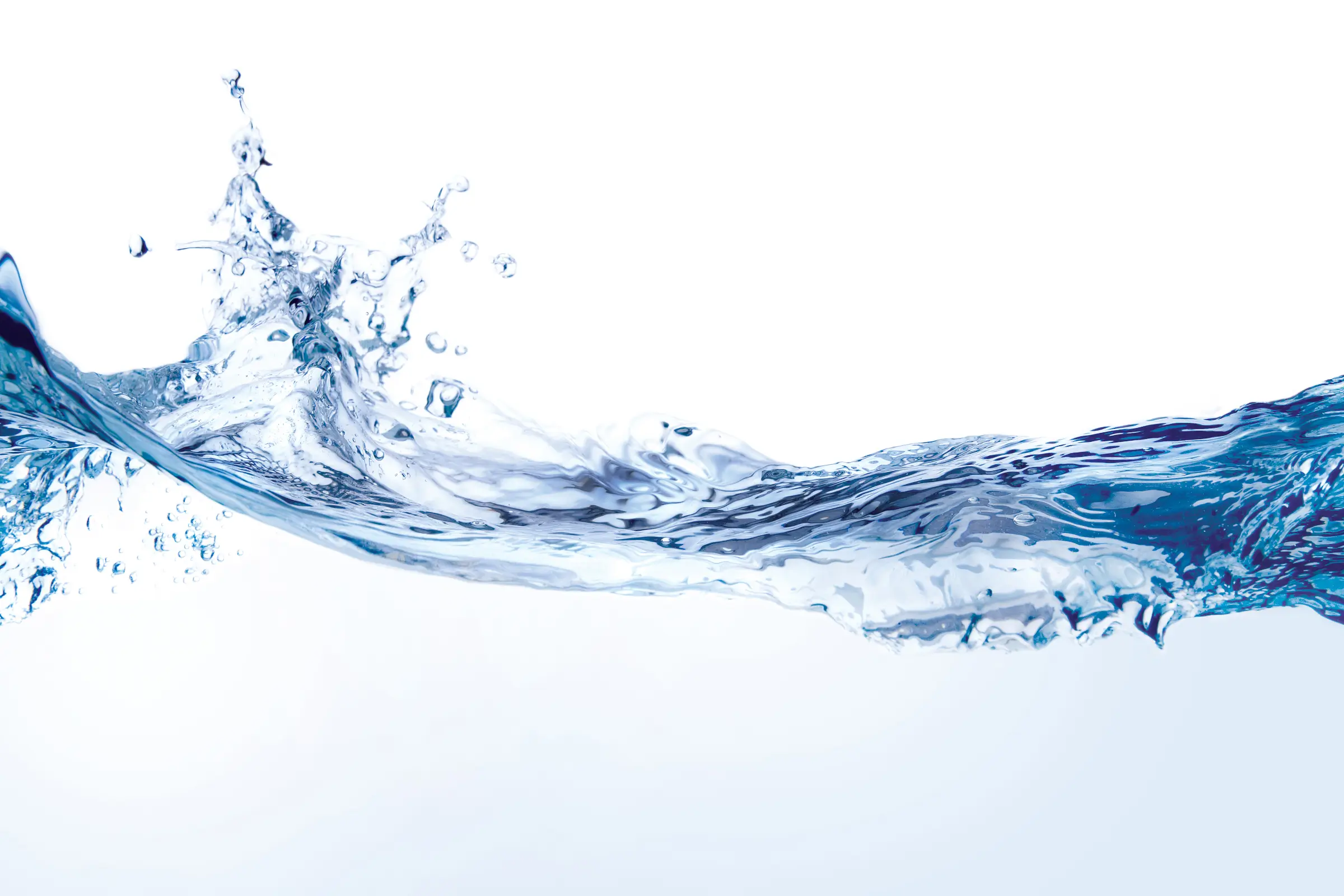World Water Week 2025: Sustainable Solutions for Lasting Impact
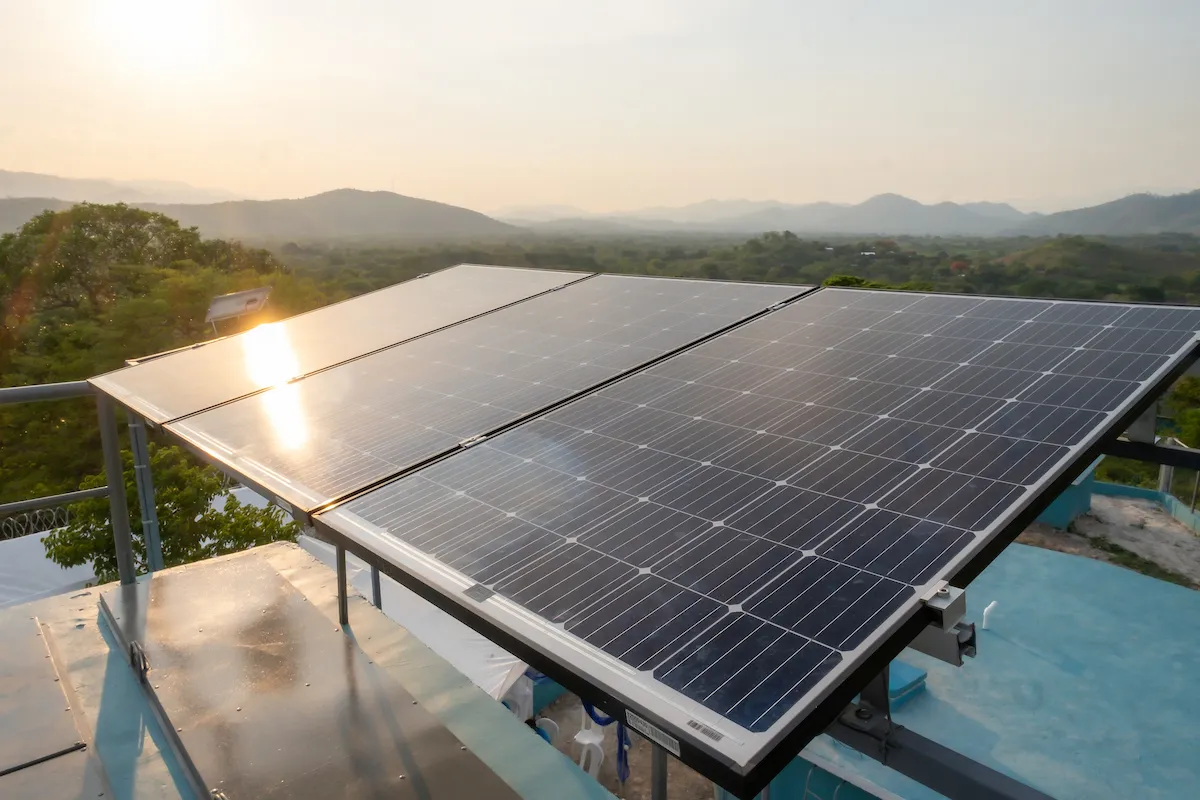
Bringing safe water to people in need cannot be done alone. Collaboration is key to achieving the United Nations’ Sustainable Development Goal (SDG) 6: to “ensure availability and sustainable management of water and sanitation for all.”
Each year at World Water Week, organizations from around the world come together to further this goal by sharing experiences, knowledge, and best practices. For 30 years, Stockholm International Water Institute (SIWI) has hosted the World Water Week conference, uniting the water, sanitation, and hygiene (WASH) sector.
Water Mission is honored to represent the communities we serve at World Water Week, which will occur from Sunday, August 24, to Thursday, August 28, 2025. This year, seven staff members will attend to connect with partners, learn from others, and co-present in a session.
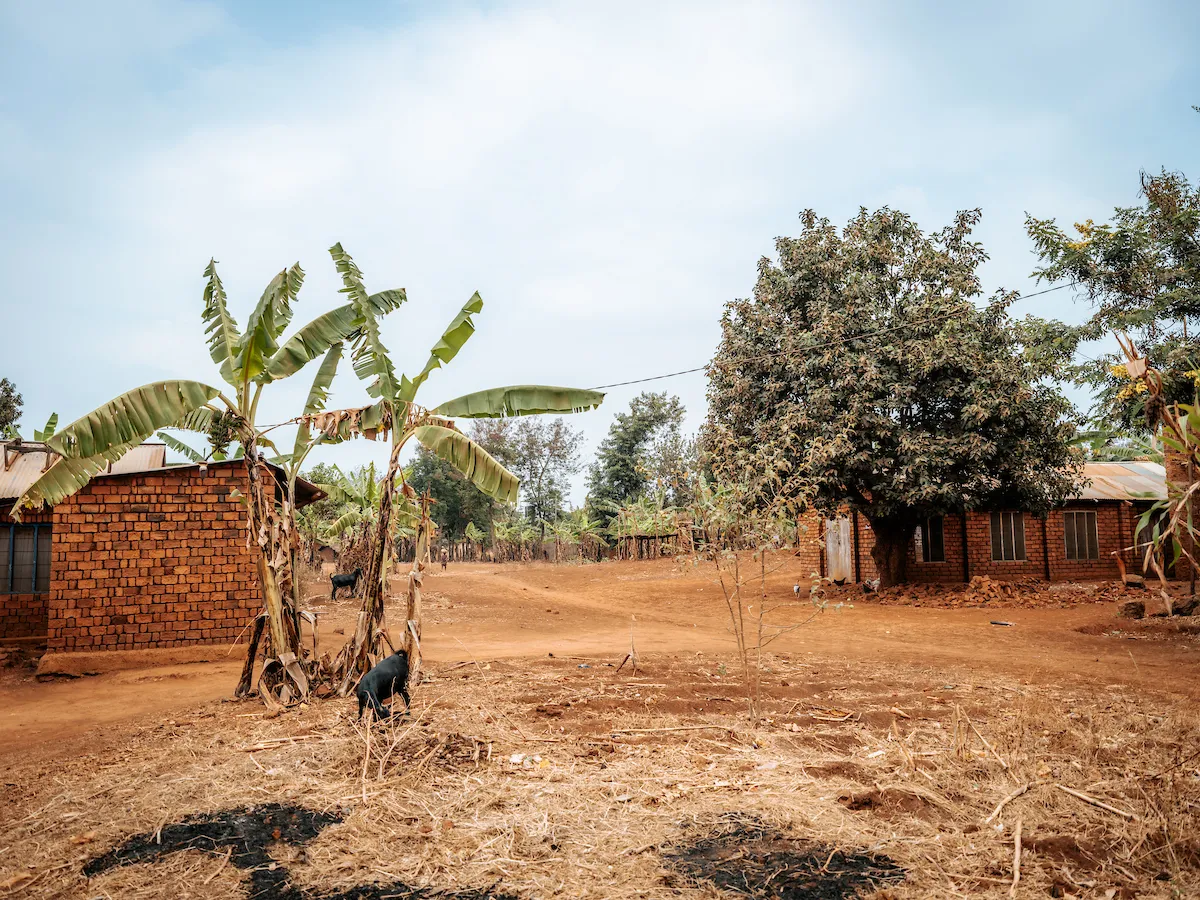
At the 2025 World Water Week conference, Water Mission staff members will share about our Carbon Credit Program in communities like Makere, Tanzania.
2025 World Water Week: Water for Climate Action
This year’s conference theme is “Water for Climate Action.” Attendees will discuss and learn about how sustainable access to WASH services is essential to meeting people's basic survival needs.
According to Grace Hilliard, Water Mission Partnerships Director, World Water Week is an opportunity for Water Mission to share about our work on a global stage and establish ourselves as a leader in the WASH sector. This allows us to deepen our relationships with current partners and explore new collaborations.
Allan Kakinda, Water Mission’s East Africa Carbon Credit Project Manager, will be presenting alongside Water for Good, Millennium Water Alliance, and Uduma in a session titled “Three Ways Climate Finance Drives Us Toward SDG6.” His presentation will highlight how Water Mission’s Carbon Credit Program generates revenue that supports the expansion and sustainability of safe water solutions.
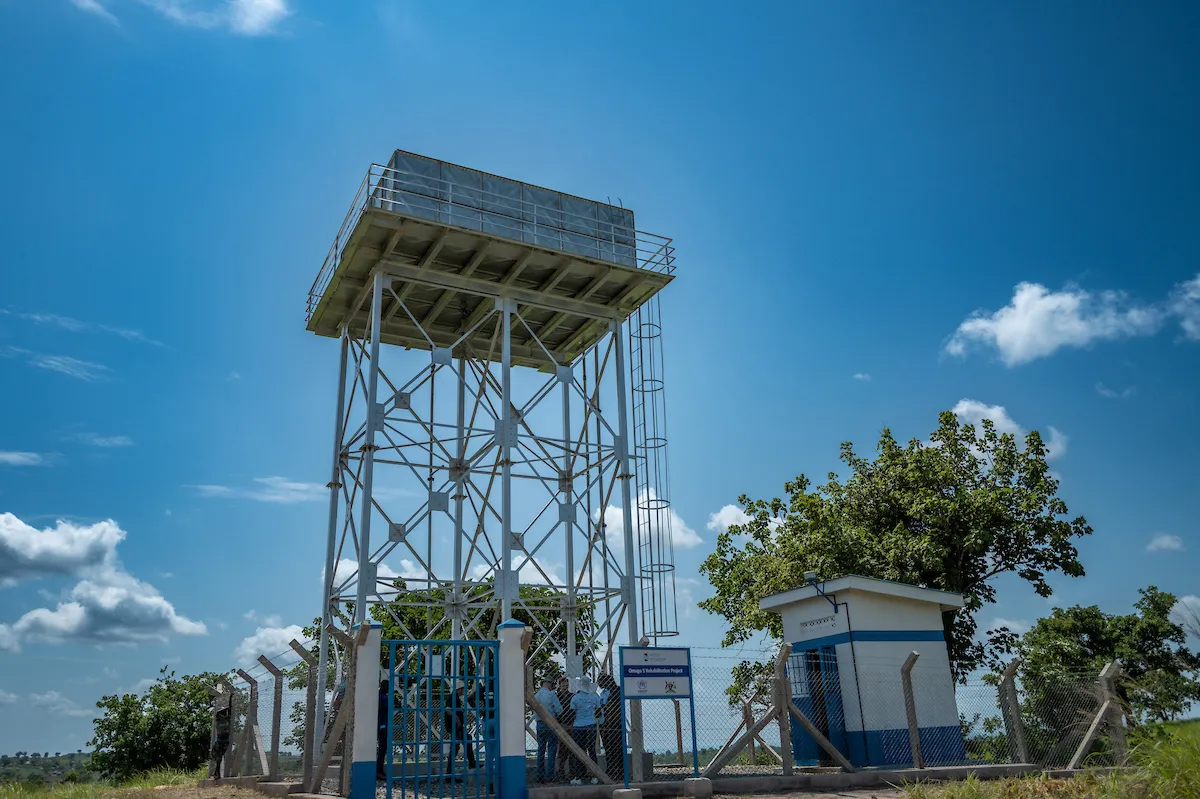
Attending World Water Week will allow us to learn from others, build connections, and distinguish ourselves for our innovative programmatic work.
How Does Water Mission Design Sustainable Solutions?
At Water Mission, we recognize that God has entrusted His people with the responsibility of caring for the earth (Genesis 1:28). This includes wise stewardship of resources like water, a practice that is critical for sustaining life and directly linked to loving others.
Our safe water projects are designed with long-term sustainability in mind. This is a tangible way that we can love and care for our global neighbors.
Through hydrogeological surveys, solar-powered pumping systems, and real-time remote monitoring, Water Mission’s safe water solutions are intentionally designed to ensure reliable access to safe water, while reducing costs and dependence on fossil fuels.
In East Africa, Water Mission’s programs are undergoing the carbon accreditation process to verify our impact and increase the financial sustainability of water systems. This helps ensure that people don’t just get short-term access to safe water but that safe water flows for years to come.
We launched our Carbon Credit Program in 2021, beginning with seven projects in Tanzania. Now, the program also operates in Malawi, Kenya, and Uganda.
In many rural communities, people treat their water by boiling it with wood fires, which releases greenhouse gases into the atmosphere and puts pressure on local forests. This was the case in Makere, Tanzania, before Water Mission implemented a solar-powered safe water solution here. Now, instead of boiling water, community members drink water from Water Mission’s solar-powered systems, improving community health, saving time, protecting forests, and reducing household expenses.
In 18 communities in Tanzania—including Makere—we have been granted carbon credit certification. Portions of the income we receive through the credits will be reinvested back into the same communities that generated them, as well as into new projects. This will help improve the financial sustainability of each community’s safe water system.
I feel good because we will be using safe water, and my children will have no diseases.
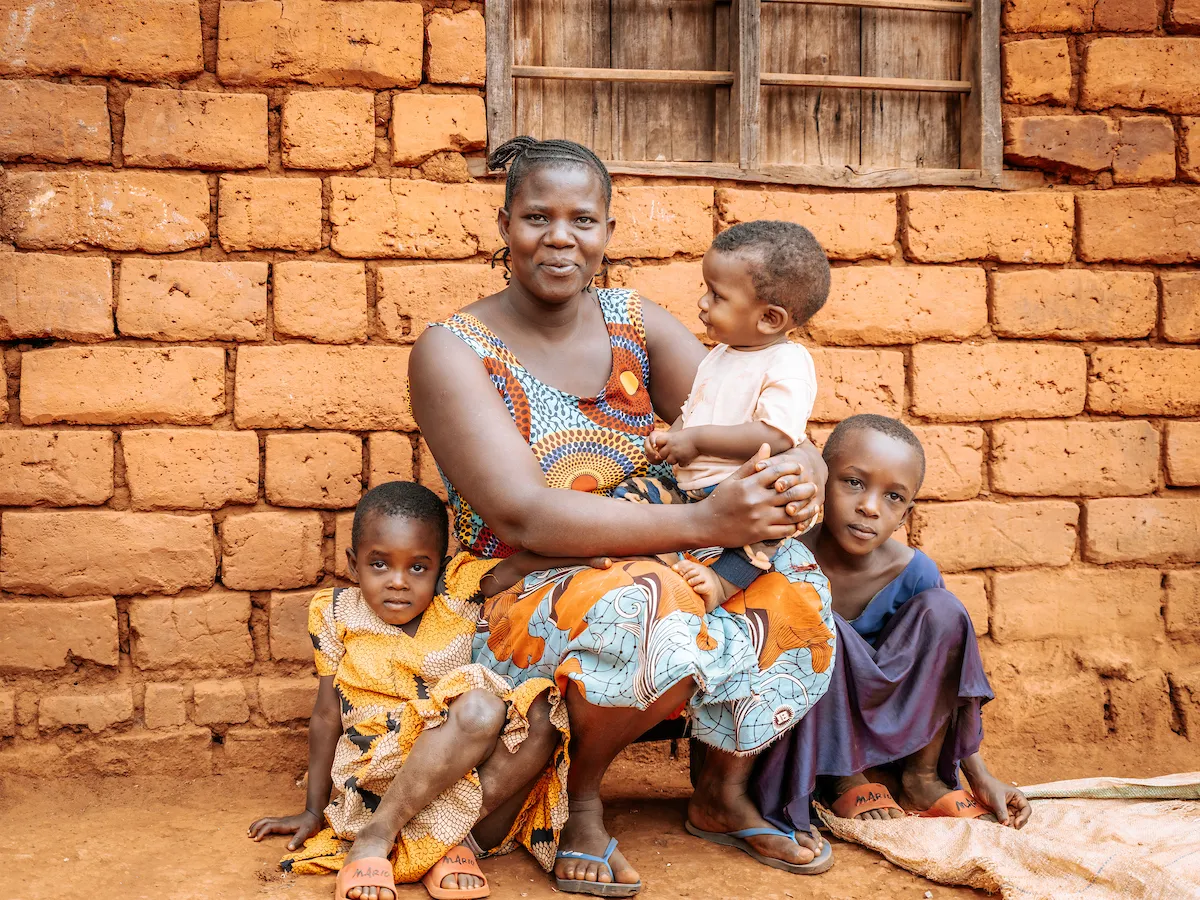
Because our project in Makere has received carbon credit certification, we have the data to prove that safe water is positively impacting Maria and her three young children.
How Does the Carbon Credit Program Help Us Provide Safe Water?
Water Mission’s vision is that all people have safe water and an opportunity to experience God’s love. The Carbon Credit Program strengthens our work toward this goal in four main ways:
- Verified Impact and Accountability. An industry-trusted crediting organization, called Gold Standard, validates the functionality and impact of the projects enrolled in our Carbon Credit Program. This is accomplished by guaranteeing that our projects meet rigorous criteria for reducing carbon emissions and deliver meaningful social benefits. By holding us accountable for the quality of our projects, Gold Standard helps ensure that our projects contribute to the SDGs. We can see the holistic impact on communities as we collect data on things like health trends and the time women and girls spend walking for water. We call this “verified impact,” because our results aren’t just claimed—they’re proven. We have validated evidence of the benefits people are experiencing because of our safe water projects.
- Community Engagement. Gold Standard-certified projects require us to engage with local stakeholders throughout the entire life of a project. This engagement allows us to maintain intentional dialogue with community leaders, listening, responding to feedback, and adapting our programming to meet their communities’ needs. By prioritizing transparency and collaboration, we confirm that our safe water solutions remain relevant and rooted in the people whom we are called to serve.
- Data Management. The requirements for Gold Standard’s certification have driven us to elevate our data management practices. With new systems in place, we can better track essential metrics, such as water production and system performance. These data insights allow us to problem-solve in real time, minimizing interruptions in providing safe water and meeting the needs of safe water recipients. This also helps Water Mission increase the professionalization of our services and gain access to new funding opportunities that support long-term sustainability and scale.
- Performance-Based Funding. Philanthropic funding alone cannot solve the global water crisis. Performance-based funding is a model that links financial support to measurable outcomes. By confirming our projects' impact through external audits, certification can open doors for Water Mission to receive funding from sustainability-driven partners and help us reach even more communities with safe water.
Our water systems are not just eliminating the emission of greenhouse gases. We are seeing improvements in health outcomes—a reduction in waterborne diseases. We are seeing gender equality. It’s really [about] these additional benefits we are seeing.
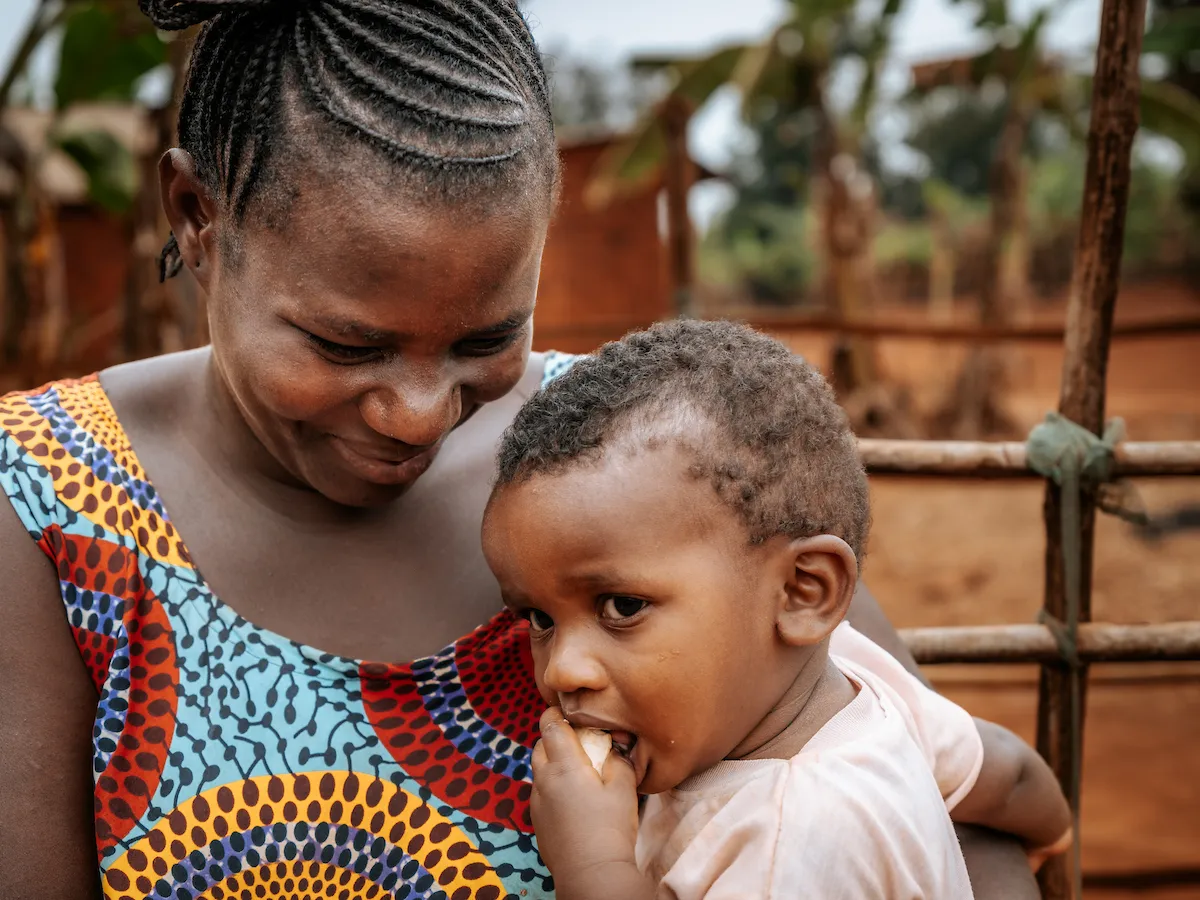
The rigorous process of carbon credit certification allows us to see tangible results of safe water access in Makere. Maria can have confidence that her children are drinking safe, clean water.
Water Mission staff are looking forward to sharing our experience with the Carbon Credit Program during World Water Week. We invite you to follow along with World Water Week on our LinkedIn and watch the session virtually on Thursday, August 28.
Together, we can ensure sustainable access to safe water for generations to come.
Related Impact Stories
